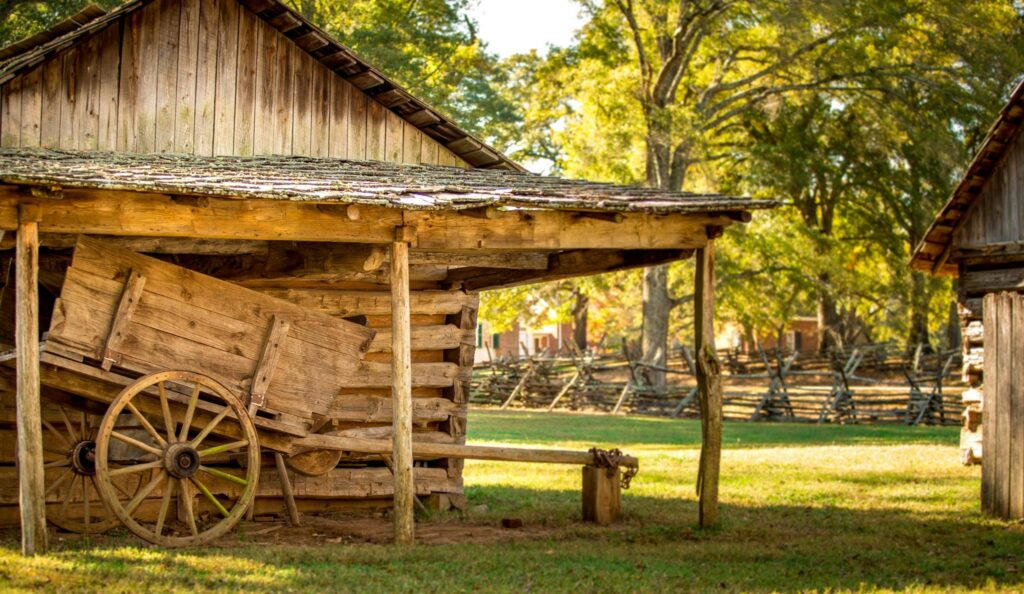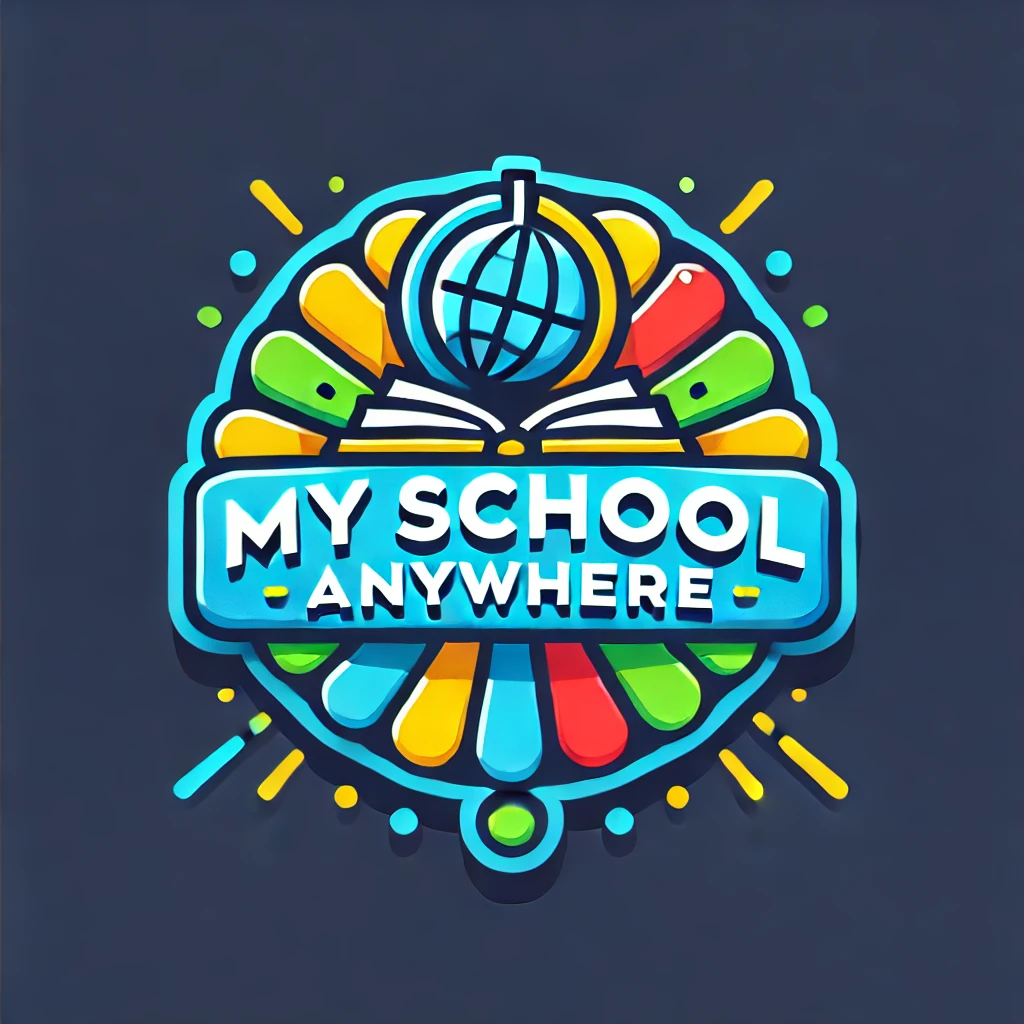
Revolutionize School Communication with MySchoolAnywhere
In today's fast-paced world, efficient communication is the backbone of any successful organization. Schools, in particular, require a streamlined communication…
Read More
In today's fast-paced world, efficient communication is the backbone of any successful organization. Schools, in particular, require a streamlined communication…
Read More
How a Toshiba Laptop Saved the Day for Quick Fix Air Repair in Pembroke Pines Traveling can sometimes bring unexpected…
Read More
The Best States for Traveling with Kids While Homeschooling Traveling with kids offers a unique way to combine learning with…
Read More
Unique Events Around the Country: Traveling to Give Your Kids Unforgettable Experiences Traveling with your kids is one of the…
Read More

Travel learning exposes kids to diverse cultures, languages, and environments, fostering curiosity and adaptability. It brings history, geography, and science to life through hands-on experiences. Kids develop critical thinking and global awareness by exploring the world beyond textbooks, creating unforgettable memories while gaining a deeper understanding of people, places, and the planet.

Traveling is one of the best ways to educate children, combining fun experiences with valuable learning opportunities. For homeschooling families, the flexibility of schedules allows for unique travel adventures that can align perfectly with educational goals. With the new year approaching, it’s the ideal time to plan a family trip. Here are some of the best destinations in America to explore with your homeschoolers, offering a blend of history, culture, science, and natural beauty.
As the nation’s capital, Washington, D.C., is a treasure trove of learning opportunities for kids of all ages. Home to world-renowned museums, such as the Smithsonian Institution’s National Museum of Natural History and the Air and Space Museum, the city offers free access to many educational venues. Walking along the National Mall provides a chance to see iconic landmarks like the Lincoln Memorial, the Washington Monument, and the Capitol. These experiences bring history and government studies to life, sparking meaningful discussions about democracy, leadership, and American history.
America’s first national park is a fantastic destination for nature-loving families. Yellowstone’s geothermal wonders, including Old Faithful and the Grand Prismatic Spring, provide an exciting introduction to geology and Earth sciences. Families can explore diverse ecosystems, spot wildlife like bison and elk, and hike scenic trails. For homeschoolers, this is a hands-on opportunity to study topics such as conservation, ecosystems, and the history of national parks.
Step back in time with a visit to Colonial Williamsburg, a living history museum where actors in period clothing recreate 18th-century life. Children can participate in interactive activities like candle-making, blacksmithing, and cooking with historical methods. This immersive experience offers a deeper understanding of the American Revolution, colonial life, and early American industries, complementing history lessons in a memorable way.
Orlando is not just about theme parks—though they’re a big part of the appeal! Walt Disney World and Universal Studios offer fun, family-friendly entertainment, but they also provide unique educational opportunities. For example, Epcot at Disney World offers glimpses into global cultures and innovations, while the Kennedy Space Center, just an hour’s drive away, provides an incredible introduction to space exploration and the history of NASA.
One of the Seven Natural Wonders of the World, the Grand Canyon is an awe-inspiring destination for homeschool families. The canyon’s vast landscape is perfect for teaching geology, geography, and natural history. Families can explore the South Rim, hike trails, or even take guided ranger programs to learn about the area’s formation and the Native American tribes who have lived there for centuries. Don’t forget to bring along notebooks for kids to sketch the stunning vistas!
Boston is a city steeped in history, making it an excellent destination for lessons in early American history and the Revolutionary War. Walking the Freedom Trail, a 2.5-mile path through the city, takes visitors to key sites like Paul Revere’s House and the Old North Church. The Boston Tea Party Ships and Museum offers an engaging way for kids to learn about this pivotal moment in American history. Additionally, nearby educational attractions like the New England Aquarium and the Museum of Science make Boston a well-rounded destination.
San Diego offers a mix of cultural, scientific, and outdoor experiences. The San Diego Zoo, one of the best in the world, is perfect for teaching biology and conservation. Balboa Park houses numerous museums, including the Fleet Science Center, while the USS Midway Museum introduces kids to naval history. The city’s beaches and mild weather also provide plenty of opportunities for relaxation and outdoor learning.
Traveling with homeschooled children is an enriching way to start the new year, combining adventure with education. Whether exploring national parks, stepping back in time at historical sites, or diving into science and culture, these destinations offer unforgettable experiences for the entire family. With careful planning and a sense of curiosity, your homeschooling journey can extend beyond the classroom, making the world your greatest teaching resource.

How a Toshiba Laptop Saved the Day for Quick Fix Air Repair in Pembroke Pines
Traveling can sometimes bring unexpected challenges, and for businesses like Quick Fix Air Repair, which specializes in commercial air conditioning repair Pembroke Pines , having the right tools and technology on hand is essential to solving problems efficiently. One day, while on the road with my RV, I witnessed firsthand how a trusty Toshiba laptop became the hero of the day for this hardworking company—and how Home Depot played a key role in fixing my RV at the same time.
It was a sweltering South Florida afternoon, and the team at Quick Fix Air Repair had just wrapped up a big project when an emergency call came in from a local business. Their AC system had suddenly stopped working, leaving employees and customers sweating in the heat. With temperatures climbing and the pressure on, Quick Fix’s technicians sprang into action.
The challenge? The problem required a precise diagnosis, and the usual diagnostic tools weren’t delivering clear results. That’s when the company’s lead technician turned to their Toshiba laptop. Equipped with software designed to interface with modern HVAC systems, the laptop provided the necessary insight to pinpoint the issue—a malfunctioning circuit in the commercial unit.
The Toshiba laptop was more than just a standard computer; it was loaded with advanced diagnostic software and technical manuals that allowed Quick Fix to identify the exact problem quickly. The technician connected the laptop to the system, accessed real-time data, and ran a series of tests that isolated the malfunction.
With the diagnosis complete, the team used the laptop to look up replacement parts and confirm compatibility, saving them valuable time. Within minutes, they had a clear action plan. Without the Toshiba laptop’s reliability and speed, diagnosing and solving the problem would have taken much longer, leaving the business in discomfort and costing valuable time and money.
As Quick Fix Air Repair worked their magic, I was tackling my own issue with my RV. A small but essential part of my air circulation system had broken during my travels. Fortunately, I had stopped near a Home Depot, where I knew I could find what I needed.
Home Depot’s selection of small parts and repair tools was a lifesaver. I found the exact replacement part for my RV’s ventilation system and picked up a few extra tools to ensure I could make the fix myself. Their staff was incredibly helpful, pointing me toward the right aisle and even giving me a few tips on the installation process.
For fellow travelers, I can’t recommend Home Depot enough for quick, reliable fixes. If you ever find yourself needing supplies on the road, you can check out their website for a wide range of parts and tools.
Watching Quick Fix Air Repair handle their challenge with professionalism and efficiency was inspiring. They didn’t just rely on their Toshiba laptop for diagnostics—they used it to educate their customer about the issue, showing them the data and explaining the solution step by step.
This level of transparency and care is what sets Quick Fix apart in Pembroke Pines. Their commitment to delivering 5-star service, no matter the situation, is evident in everything they do. Whether it’s a simple repair or a major commercial AC overhaul, Quick Fix Air Repair goes above and beyond to ensure their customers are cool, comfortable, and satisfied.
Both my RV repair and Quick Fix’s AC emergency underscored the importance of having the right tools and technology at your fingertips. The Toshiba laptop wasn’t just a device; it was a vital part of the team, enabling Quick Fix to solve a problem quickly and efficiently. Similarly, having access to Home Depot’s wide range of parts made all the difference in getting my RV back in working order.
For businesses and travelers alike, investing in quality tools and knowing where to turn for supplies can make or break a challenging situation. Quick Fix Air Repair’s success story is a testament to the power of preparation, adaptability, and modern technology.
In the end, it was a Toshiba laptop and a stop at Home Depot that saved the day in two very different ways. For Quick Fix Air Repair, their laptop ensured a smooth and speedy resolution to a critical AC problem. For me, Home Depot provided the parts and support I needed to keep my RV running smoothly.
Whether you’re managing a business like Quick Fix or navigating life on the road, having reliable resources and tools makes all the difference. And when those resources work as seamlessly as Quick Fix’s Toshiba laptop and Home Depot’s helpful inventory, you’re reminded that even the toughest challenges can be solved with the right support.

The Best States for Traveling with Kids While Homeschooling
Traveling with kids offers a unique way to combine learning with adventure, especially for homeschooling families. Some states stand out as exceptional destinations for families on the move, providing enriching experiences that make education come alive outside the classroom. Here are the best states for traveling with kids that are extra friendly to learning while embracing the joys of homeschooling.
California is a homeschooling family’s dream with its incredible variety of landscapes, cultures, and educational opportunities. Kids can marvel at the towering redwoods in Northern California or explore the mysteries of Yosemite National Park. In San Francisco, visits to the Exploratorium and the California Academy of Sciences offer hands-on STEM learning. Meanwhile, Southern California boasts iconic attractions like the San Diego Zoo, where children can learn about wildlife conservation, and the Griffith Observatory in Los Angeles, which brings space exploration to life.
Florida is an ideal destination for families seeking a mix of adventure and education. The Kennedy Space Center in Cape Canaveral lets kids get up close to rockets and learn about the history of space exploration. For marine biology enthusiasts, the Florida Keys and the Everglades National Park provide opportunities to observe unique ecosystems and wildlife, including manatees, dolphins, and alligators. Florida’s homeschooling laws are also accommodating, making it easier for families to continue their educational journey on the go.
Although not a state, Washington, D.C., deserves a place on this list for its unparalleled learning opportunities. The Smithsonian Institution offers free access to museums like the National Air and Space Museum, the Natural History Museum, and the National Museum of American History. Walking tours of the monuments and government buildings provide a firsthand look at American history and civics. It’s a chance for kids to see the stories they’ve read about come to life.
Texas combines a rich history with exciting outdoor adventures. At the Alamo in San Antonio, kids can delve into early American history, while NASA’s Space Center Houston offers engaging exhibits about space exploration. The state’s wide-open landscapes also invite outdoor learning, from stargazing in Big Bend National Park to exploring the unique geology of the Palo Duro Canyon. Texas is particularly homeschool-friendly, with plenty of resources for traveling families.
For families who love the outdoors, Colorado offers endless opportunities for hands-on learning. Rocky Mountain National Park provides lessons in geology, ecology, and wildlife observation. The Denver Museum of Nature & Science combines indoor exhibits with interactive educational experiences, while the state’s many mining towns teach kids about the history of the gold rush. Colorado’s homeschool-friendly atmosphere and natural beauty make it a top pick for traveling learners.
Pennsylvania is a treasure trove of historical learning. Kids can walk in the footsteps of the Founding Fathers in Philadelphia, visiting landmarks like Independence Hall and the Liberty Bell. A trip to Gettysburg immerses them in Civil War history, while Amish Country offers a glimpse into a unique way of life. Pennsylvania is perfect for sparking curiosity about America’s past.
Arizona offers a blend of natural beauty and scientific discovery. At the Grand Canyon, kids can learn about geology while marveling at one of the world’s most breathtaking landscapes. The Lowell Observatory in Flagstaff lets budding astronomers explore the stars, and the Desert Botanical Garden in Phoenix teaches about desert ecosystems. Arizona’s educational attractions make it a fantastic destination for homeschooling families.
Massachusetts is a must-visit for history-loving families. Boston’s Freedom Trail brings Revolutionary War history to life, while the Plimoth Patuxet Museums teach about the Pilgrims and Native Americans. Harvard University and MIT in Cambridge offer campus tours that inspire kids with the possibilities of higher education. The state’s rich history and cultural significance make it an unforgettable learning destination.
These states stand out because they offer a mix of hands-on experiences, natural beauty, and educational attractions that align seamlessly with homeschooling. Traveling through these destinations allows kids to learn in an immersive way, sparking their curiosity and expanding their horizons. From history and science to culture and ecology, the lessons gained in these states go far beyond textbooks.
Homeschooling while traveling is a unique opportunity to give your kids a front-row seat to the wonders of the world. Whether exploring the beaches of Florida, hiking in Colorado, or diving into history in Pennsylvania, these states make it easy and enriching to learn on the go. So pack your bags, hit the road, and let the journey of discovery begin!

Unique Events Around the Country: Traveling to Give Your Kids Unforgettable Experiences
Traveling with your kids is one of the most rewarding ways to expand their horizons, and one of the most exciting aspects of travel is experiencing events that happen only in specific places. From quirky festivals to natural phenomena, these one-of-a-kind experiences offer opportunities for your children to see, learn, and marvel at things they might never encounter otherwise. Here are some unique events across the country that make travel not just fun, but truly unforgettable.
Imagine your child’s awe as hundreds of colorful hot air balloons rise into the sky at dawn, painting the horizon with vibrant colors. The Albuquerque International Balloon Fiesta, held every October, is the largest hot air balloon event in the world. Kids can walk among the balloons during the “Glowdeo” at night, watch skilled pilots compete in precision challenges, and even meet balloonists from around the globe. It’s a magical experience that sparks curiosity and wonder.
While the Northern Lights can sometimes be seen in northern states, Fairbanks, Alaska, offers one of the best places in the United States to experience this natural wonder. Traveling here between August and April gives kids a chance to see the sky light up with shimmering waves of green, purple, and pink. Watching the aurora borealis feels like stepping into a dream, and it’s an unforgettable science lesson about Earth’s atmosphere and solar particles.
Every fall, thousands of monarch butterflies migrate to Pacific Grove, California, creating a dazzling spectacle in the Monarch Butterfly Grove Sanctuary. Known as “Butterfly Town, USA,” Pacific Grove celebrates these delicate visitors with an annual festival and special educational programs. Kids can witness the beauty of nature in motion while learning about the vital role these creatures play in our ecosystem.
Mardi Gras in New Orleans is one of the most iconic celebrations in the world, with its lively parades, vibrant costumes, and rich cultural traditions. For families, there are plenty of kid-friendly events during the season, including daytime parades where children can catch colorful beads, masks, and toys. Kids also have the chance to learn about the city’s history, music, and Creole culture, making Mardi Gras a joyful and enriching experience.
Although not an annual event, solar eclipses are rare and awe-inspiring phenomena that your children will remember for a lifetime. Specific locations across the U.S. offer prime viewing spots during an eclipse, such as Carbondale, Illinois, or Madras, Oregon, during recent occurrences. Watching the moon perfectly align with the sun is both thrilling and educational, providing a hands-on lesson in astronomy.
For a glimpse into one of America’s oldest traditions, take your kids to the Kentucky Derby in Louisville. Known as “The Most Exciting Two Minutes in Sports,” this horse race is an electrifying event full of pageantry, history, and fun. Families can enjoy the Derby Festival, featuring a parade, hot air balloon races, and fireworks leading up to the main event. It’s a chance for kids to experience the excitement of a cultural tradition that’s over 140 years old.
If your children are animal lovers, they’ll be thrilled by the chance to see manatees up close at the Florida Manatee Festival. Held annually in Crystal River, this event celebrates the gentle giants that gather in the area’s warm waters each winter. Kids can learn about marine conservation, participate in fun activities, and even take boat tours to observe manatees in their natural habitat.
There’s no substitute for seeing the power of nature in action, and Old Faithful in Yellowstone National Park offers just that. Watching this famous geyser erupt on schedule is a thrilling experience for kids. Combine it with exploring Yellowstone’s other geothermal features, like bubbling mud pots and colorful hot springs, to create a day filled with natural wonders.
Traveling to experience these unique events teaches kids that the world is full of incredible things waiting to be discovered. It helps them understand the importance of preserving nature and cultural traditions and shows them how diverse and beautiful our country is. These experiences also foster a sense of adventure and curiosity that can last a lifetime.
From natural marvels to cultural celebrations, traveling to specific places lets your children see and experience events they’ll never forget. These moments spark wonder, inspire learning, and create lifelong memories, making travel one of the best ways to show kids the magic of the world. So pack your bags, hit the road, and let the adventures begin!

Exploring Holiday Traditions Across the Country: A Journey of Adventure and Wonder for Children
Children are natural adventurers, filled with curiosity and wonder about the world. One of the most beautiful gifts parents can give them is the chance to travel and see how people in different parts of the country celebrate holidays in their unique ways. From snow-covered mountain towns to sunny coastal cities, the diversity of holiday traditions across the United States offers children an invaluable opportunity to grow, learn, and connect with others. When kids experience these differences firsthand, they become more open to the world and grow into compassionate, understanding adults who appreciate the many ways love and joy can be shared.
Each region of the country celebrates holidays in its own special way, influenced by its history, geography, and culture. For a child, seeing these traditions unfold is like stepping into a storybook where every chapter holds something new and exciting.
Imagine starting the holiday season in the Midwest, where small-town parades and Christmas markets light up the frosty evenings. In places like Chicago, families gather to admire the dazzling lights of the Magnificent Mile, while children sip hot chocolate as they glide across outdoor ice rinks. Moving to the South, holiday traditions take on a unique warmth. In New Orleans, kids might marvel at colorful bonfires along the Mississippi River, a tradition meant to light the way for Santa Claus. These regional celebrations show children that even though traditions vary, the spirit of togetherness remains the same.
Traveling to see how holidays are celebrated across the country helps children understand that there’s no single “right” way to experience joy and love. For example, a visit to California during the holiday season might introduce kids to tamales as part of Christmas dinner, a delicious tradition in many Mexican-American households. In Hawaii, the holiday spirit includes palm trees wrapped in lights and Santa arriving by canoe. In the Northeast, families might bundle up for a traditional Hanukkah celebration, complete with the glow of menorahs and the delightful crunch of latkes.
By being part of these celebrations, even as visitors, children learn to appreciate the beauty of diversity. They understand that love and connection come in many forms, whether it’s gathering around a Christmas tree, lighting a menorah, or sharing a meal with family and friends. This exposure fosters empathy and respect for others, planting seeds of kindness that will grow throughout their lives.
Holiday travel isn’t just about traditions—it’s also an opportunity to experience the breathtaking beauty of the country. Each region has its own wonders, and seeing them in person gives children memories they’ll cherish forever.
Take the West Coast, for example. A visit to California during the holidays could include marveling at the towering redwoods, some of the largest trees in the world. Imagine a family decorating a small tree at the base of these giants, sharing stories and laughter under the stars. Heading east, children might stand in awe as gray whales breach off the coast of Boston Harbor, an incredible sight few ever get to see.
In the Midwest, kids can play in snowy wonderlands, building snowmen or sledding down hills, surrounded by landscapes that seem straight out of a holiday movie. And in the sunny Southeast, they might explore charming coastal towns where Christmas lights shimmer on boats during holiday parades on the water.
These adventures teach children that the world is full of marvels, big and small. Whether it’s the stillness of a snow-covered forest or the excitement of spotting wildlife in its natural habitat, these experiences ignite a lifelong sense of curiosity and wonder.
Traveling during the holidays is a chance for children to see that learning doesn’t only happen in a classroom. It happens when they stand in awe of a massive Christmas tree in New York City’s Rockefeller Center, listen to carolers in Savannah’s historic squares, or experience the quiet magic of luminarias lighting up the streets of Santa Fe.
Each new place they visit becomes a lesson—not just about geography or history but about people and their stories. They learn how traditions evolve, how communities come together, and how love is expressed in different ways. These lessons go beyond books; they’re felt deeply, shaping how children see the world and their place in it.
While the ways people celebrate holidays may vary, the common thread is love. From decorating cookies in a cozy mountain cabin to joining a community feast in a bustling city, it’s the spirit of giving, connection, and joy that truly matters. Children who experience this firsthand understand that what binds us together is far greater than what sets us apart.
By traveling and exploring the many ways people celebrate, children grow up to embrace the world with open hearts and open minds. They learn to see differences not as barriers but as opportunities to connect and celebrate the shared humanity that unites us all.
For children, traveling during the holidays is more than an adventure—it’s a chance to build lasting memories and grow into their best selves. They learn independence by navigating new places, develop resilience by adapting to new experiences, and gain a sense of wonder that will stay with them forever.
So pack up the car, book a train ticket, or catch a flight. Let the holidays become a season of exploration and learning, where your children can discover not just the beauty of different traditions but also the joy of loving the world and its infinite possibilities.

Why Raising Children on the Road Cultivates a Love for the World
In a world increasingly connected yet still divided by borders, raising children in a lifestyle of constant travel offers a profound gift: the opportunity to fall in love with the world. Educating children while traveling not only enriches their academic experience but also nurtures emotional growth, adaptability, and a deep appreciation for the diverse tapestry of humanity. Here’s why never settling in one place and embracing a life of exploration is a powerful approach to raising global citizens.
Traveling exposes children to a rich array of cultures, beliefs, and ways of life. From sharing meals with a local family in a small village to participating in vibrant festivals in faraway cities, kids are immersed in experiences that show them the beauty of differences. These interactions foster empathy and open-mindedness, helping children see beyond stereotypes and recognize the common humanity that binds us all.
For example, a child who learns about Diwali in India or celebrates the Lunar New Year in China gains an appreciation for traditions that might otherwise remain abstract lessons in a textbook. Meeting people from different backgrounds allows them to understand diverse perspectives, nurturing a respect for others and a curiosity about the world.
One of the greatest gifts of a nomadic lifestyle is the ability to embrace change. Constantly moving from one location to another teaches children that change is not something to fear but an exciting opportunity for growth. They learn to adapt to new environments, routines, and challenges, building resilience and flexibility.
In a traditional setting, change can often feel daunting—starting a new school, meeting new friends, or adjusting to unfamiliar situations. But for a child raised on the road, change becomes second nature. They learn to approach the unknown with confidence and optimism, valuable skills that will serve them throughout life.
Traveling the world isn’t just an adventure; it’s a powerful tool for emotional development. Seeing the struggles and triumphs of people in different circumstances fosters gratitude and compassion. Visiting places of historical significance, like Auschwitz or the Civil Rights Museum, teaches children to empathize with the past and appreciate the present.
Additionally, constantly being exposed to new surroundings encourages children to step outside their comfort zones, which builds self-confidence. Whether it’s trying unfamiliar food, navigating a foreign city, or learning a new language, every challenge overcome contributes to emotional maturity and self-assuredness.
Living a nomadic lifestyle teaches children the value of independence and the freedom that comes from not being tethered to material possessions. In a world often consumed by consumerism, children raised on the road learn that happiness doesn’t come from things but from experiences and connections.
With limited space in a suitcase or backpack, children learn to prioritize what truly matters. This minimalist mindset fosters resourcefulness and gratitude, as they discover that the most meaningful moments are often the simplest—stargazing in the desert, playing soccer with local kids on a beach, or hiking to a breathtaking view.
Education while traveling offers unparalleled opportunities for hands-on learning. A child studying history can walk the ancient streets of Rome or visit the Great Wall of China. Geography lessons come to life when they trek through rainforests or sail across oceans. Science becomes tangible as they observe ecosystems in the Galápagos or witness the Northern Lights.
This experiential learning fosters a love for discovery and encourages children to ask questions about the world around them. It also teaches them that education isn’t confined to classrooms—it’s a lifelong journey.
Ultimately, raising children on the move nurtures a profound love for the world. The more they experience its beauty, diversity, and complexity, the more invested they become in preserving it. A child who has snorkeled in coral reefs is more likely to care about marine conservation. A child who has made friends across borders understands the value of global cooperation.
This lifestyle instills a sense of belonging—not to one specific place but to the world as a whole. It creates global citizens who value inclusivity, respect, and the richness of human diversity.
Raising children while traveling the world provides an education far beyond academics. It shapes them into adaptable, empathetic, and curious individuals who see the world as a place to be explored, cherished, and protected. By exposing them to diverse people, customs, and environments, this lifestyle not only helps them embrace change and develop independence but also fosters a deep, abiding love for the world and its infinite wonders.

The Case for Homeschooling: Why It’s the Best Way to Learn Anywhere in the Country
Homeschooling has emerged as a highly effective and flexible way for children to receive an education tailored to their unique needs. Across the United States, parents are embracing this model as an alternative to traditional schooling, discovering its unmatched benefits for both academic and personal development. Here’s why homeschooling stands out as the best way to learn anywhere in the country.
Individualized Education
One of the most compelling advantages of homeschooling is its ability to provide an individualized education. Every child learns differently, with varying paces, styles, and interests. Traditional classrooms often struggle to accommodate these differences due to large class sizes and standardized curricula. Homeschooling, however, allows parents to design a learning experience that aligns perfectly with their child’s strengths and needs. Whether a child excels in math or thrives in the arts, homeschooling offers the freedom to focus on their passions while ensuring a well-rounded education.
Flexible Scheduling
Unlike the rigid schedules of public or private schools, homeschooling offers unparalleled flexibility. Families can tailor their day to suit their lifestyle, whether it means starting the school day later, incorporating field trips, or taking breaks when needed. This flexibility is particularly beneficial for families who travel frequently, as homeschooling can happen anywhere—whether at home, in a park, or on the road.
In addition to accommodating travel, this flexibility enables parents to spend more quality time with their children, fostering closer family bonds. It also creates opportunities for students to pursue extracurricular activities, internships, or part-time jobs that may not fit into a traditional school schedule.
Focus on Real-World Skills
Homeschooling provides an excellent platform to teach practical, real-world skills alongside academics. Parents can incorporate financial literacy, cooking, critical thinking, and problem-solving into daily lessons, ensuring their children are prepared for adulthood. Unlike traditional schools that might emphasize rote memorization, homeschooling allows students to engage in hands-on learning experiences, from science experiments in the kitchen to history lessons at a local museum.
Safe and Supportive Learning Environment
Another key benefit of homeschooling is the ability to provide a safe and supportive learning environment. Bullying, peer pressure, and other social challenges can significantly impact a child’s ability to focus and thrive in a traditional school setting. Homeschooling eliminates these stressors, creating a positive atmosphere where children can grow confidently. Moreover, parents can instill their values and beliefs into their child’s education, ensuring a holistic approach to moral and ethical development.
Academic Excellence
Studies consistently show that homeschooled students often outperform their peers in standardized tests and college admissions. This success is largely attributed to the one-on-one attention they receive, the ability to move through subjects at their own pace, and the deeper engagement in their studies. Colleges and universities across the country are increasingly recognizing the strengths of homeschooled applicants, making it a viable pathway to higher education.
A Growing Community
Homeschooling no longer means isolation. Across the country, vibrant homeschooling communities have formed, offering co-ops, group activities, sports teams, and social events. Online resources and curricula have also made homeschooling more accessible than ever, providing parents with the tools to deliver a top-tier education from the comfort of their home.
In conclusion, homeschooling offers an unparalleled opportunity for children to learn in a way that suits their individual needs and goals. With its flexibility, focus on real-world skills, and emphasis on personal growth, homeschooling is proving to be the best way to learn—no matter where you live.

